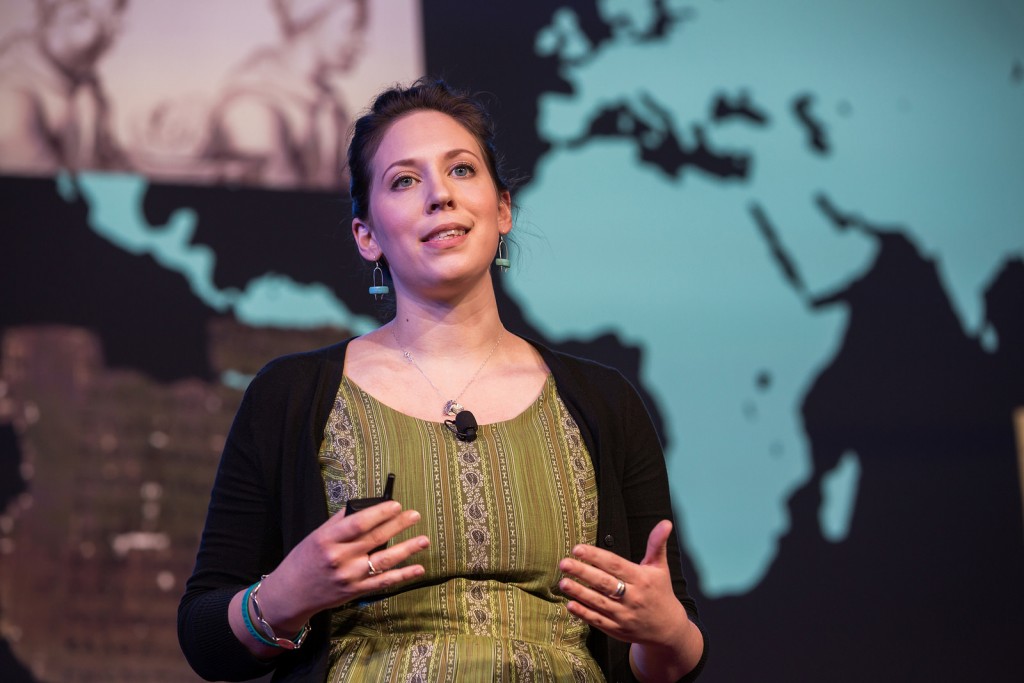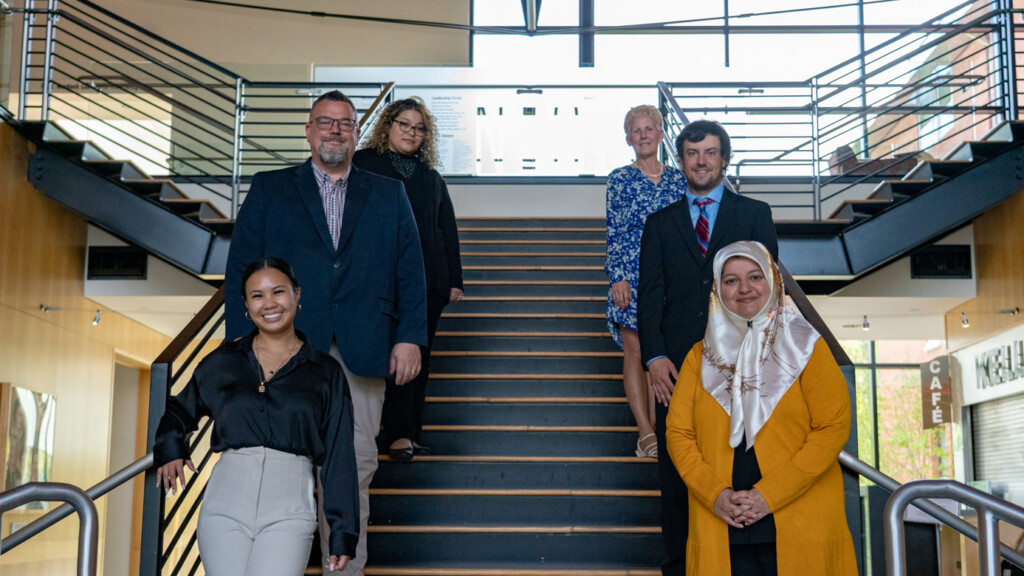Page 90 • (941 results in 0.071 seconds)
-

States,” Davidson said. Students in the cohorts claim a variety of backgrounds — with families from countries all over Central and South America, for example — and their majors are as diverse as they are: biology, education, philosophy, social work, kinesiology, and more. But Davidson said their shared experiences are key to creating the sense of community, a primary factor that has contributed to the cohorts’ near-perfect retention rate, despite the challenges first-generation students of color
-
began supporting schools through taxes, a concept that at the time was unheard of. “What we take for granted as public education, which is supported through taxes, is a Luther invention,” he said. But Torvend argues perhaps the most important Lutheran innovation in education was allowing every subject to exist independently. “That meant that professors in religion could not tell professors in geology or biology how to go about the study of their discipline; it meant that professors in psychology
-

in England, where she earned a master’s of science after blending her PLU degrees—and her life experience—into the emerging field of paleopathology: the study of disease, health, trauma and diet in human biology in ancient societies. “I want to look at evidence of cancer in archaeological remains, and add to a dataset that’s virtually nonexistent,” Hunt said. “At that point I wouldn’t have even called it a field—now it is, but a very, very small field.” A small field, maybe—but one with
-

PLU's Bachelor of Business (BBA) MajorSchool of Business Programs for Non Business MajorsEarn Your MBA at PLUMaster of Science in Marketing Analytics Read Previous John Evanishyn ‘21 studied environmental science on campus—and in France and Costa Rica—during his four years at PLU Read Next Q&A with Biology Major Brandon Nguyen ’21 COMMENTS*Note: All comments are moderated If the comments don't appear for you, you might have ad blocker enabled or are currently browsing in a "private" window. LATEST
-
High School in 2008 and received a degree in biology from Pacific Lutheran University in 2012. He served in AmeriCorps for a number of years, spending most of that time at Giaudrone and Jason Lee middle schools. He was preparing to take the LSAT and apply to law school this winter. Panago was one of the most naturally intelligent and capable people we knew. He recently began a job at State Farm that he found very rewarding. He prided himself on being able to help frustrated clients and turn an
-

beautiful places in our state,” he said. “And that’s a really important first step in becoming an advocate for the environment.” Wade, too, remains deeply rooted in the lifestyle he forged through his years of work in that little utility room behind the ASPLU office. After graduating from PLU with a degree in biology, he leveraged his experience with Outdoor Rec into a job with American Alpine Institute as a climbing guide before moving on to work for Cornell Outdoor Education as the manager of the
-
-discovery. The biology major opted to veer from his original plan to become a dentist. In his final months, he decided to pursue law school and was preparing to take the LSAT. He was there shaking things up and making things happen.- Jonathan Jackson '12 Panago embraced healthy living, spending time at the gym and dropping weight. Despite his best efforts, his health took a turn in 2013. That’s when he experienced his first seizure, his mother said, the first in a years-long battle with epilepsy. He
-
in the maintenance of health, the prevention of disease and the optimizing of physical performance. Topics covered include: consumer nutrition skills, basic nutrients and nutritional science, energy balance, sport and performance nutrition including the use of supplements and ergogenic aids, lifespan nutrition, global nutrition and food safety. (4) KINS 322 : Physical Education in the Elementary School Organization and administration of a developmental program for grades K-6; sequential and
-
successfully completed. Traditional B.S.N. Sequence: Students must successfully complete Biology 201, 205, and 206, Chemistry 105 , Statistics 231, Psychology 320 (Development Across the Lifespan), and Nutrition (NURS 120 or equivalent) before beginning the nursing program. (See Admission Criteria for GPA requirements in prerequisite and corequisite courses.) RN-with non-nursing baccalaureate degree or higher to M.S.N. Program. See options for registered nurses in the Master of Science in Nursing section
-
and deliver it to the Biology Department for treatment. Medical waste shall go into the special orange plastic waste bags that are labeled with the universal biohazard symbol or with the word “Biohazard” or “Biohazardous Waste” and provided by the Biology Department. Sharps, such as needles or syringes, contaminated with blood or other potentially infectious materials shall be placed into a rigid plastic sharps container. Sharps that are not contaminated must also be contained in a rigid container
Do you have any feedback for us? If so, feel free to use our Feedback Form.


